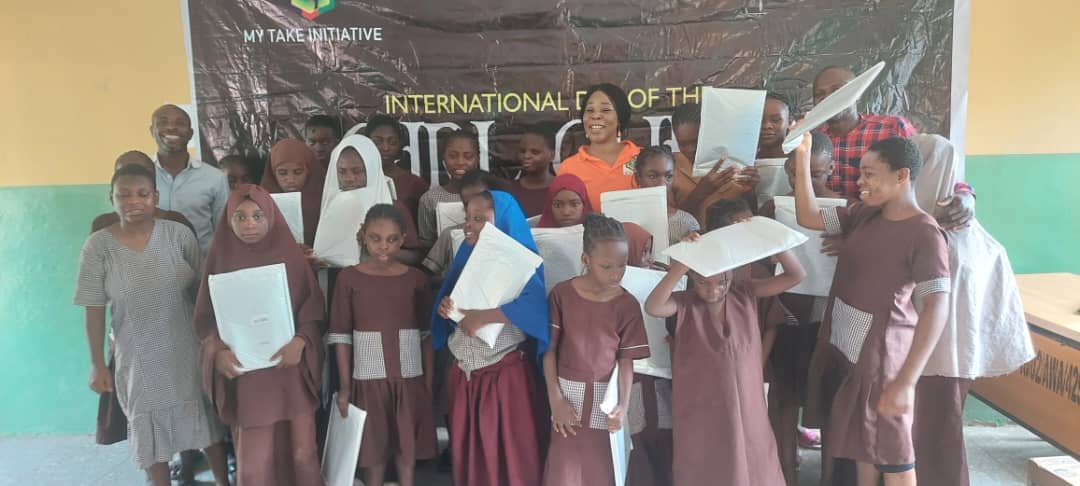- Says we must give equal value to all children
- São Paulo State Bar Association Senior Associate reveals Brazil has a ratio of one Public Defender to about 30,000 people
The immeasurable benefits of education and its being the key to better quality of life for women and girls formed part of the conversations at a virtual parallel event hosted by My Take Initiative with the United Nations CSW68 Forum on 15 March, 2024.
Kickstarting the discussion at the event tagged, Education For All: Ensuring Inclusion And Equitable Learning Opportunities For women And Girls, convened by Dr. Rosemary Chikwendu, Executive Director of My Take Initiative, ex-Africa Regional Vice President of FIDA, Chief Mrs Victoria Awomolo, SAN, pointed out that education is the key that will unlock opportunities for the girl child.
“With education, a girl child can compete effectively. She will be financially empowered and she can make the right decisions. Education key to civilization and a better quality of life for the girl child.”
The Senior Advocate of Nigeria and My Take Initiative’s Board of Trustees Chair added that: “Beyond advocacy and parents knowing the importance of education, mothers should also be provided with some form of education for them to appreciate its value and importance.” Chief Mrs Awomolo noted that a mother who knows the value of education and the doors it is capable of unlocking will do everything to ensure her female child is not left behind.

Drawing a parallel between the challenges of females in Nigeria and Brazil, Bianca dos Santos Waks a member of the São Paulo State Bar Association Non-profit Law Commission, Senior Associate and Pro Bono Coordinator at Mattos Filho Advogados, spoke extensively about gender inequality in Brazil.
Bianca who has served as a consultant to the United Nations Development Program (UNDP) advising the General-Secretariat of the Presidency of Brazil on a new regulatory framework for partnerships between non-profits and public authorities revealed that although there are more women with university education than men in Brazil, there is a strong workplace discrimination against women, with more men being able to secure good jobs commensurate with their qualifications.

The former researcher at FGV São Paulo Law School equally disclosed that Brazil holds the 4th position in early child marriage in the world adding that there is a huge rate of abused girls, young girls giving birth and dropping out of school in the South American country.
Expressing pain that young girls are forced into harrowing experiences when they should be at school or being looked after at home, Bianca also revealed that her country has a huge challenge with access to justice and free legal services adding that Bazil has a ratio of one Public Defender to about 30,000 people.
According to, Bianca dos Santos Waks, sexual abuse is prevalent in Brazilian universities with Professors also psychologically exploiting their victims.
She however said her organisation renders pro bono services to right gender inequalities and rights violations; does awareness campaigns against racism/discrimination particularly against children in schools.

Additionally, Ms. dos Santos Waks’ organisation grants scholarships, sponsors and create opportunities for vulnerable women to either go to school or complete their studies when circumstances make them drop out of school; get breastfeeding women to complete prison terms at home so the children will be brought up in prison.
Victoria Banke Olagbegi-Oloba, a Law Lecturer and member of the American Bar Association Section of International Law called for intentional quality education for Nigerian children, training and retraining of teachers so that there will be quality teachers and a level playing field for male and female in the workplace after school
Banke Olagbegi-Oloba recommended that financial barriers to education should be breached by providing scholarships for brilliant vulnerable girls. The law lecturer said this will curb the challenge of dropouts among smart, brilliant young girls who run into problems capable of aborting their future
Recounting how her brother a retired judge advised her dad against training her in school, she advocated provision of welfare and counselling for poor and vulnerable girls.
Moreover, Ms. Olagbegi-Oloba stressed the importance of adequate facilities to enhance quality education in public schools; monitoring and evaluation to assess the quality of education for accountability and improvement in the public school system; collaboration between CSOS and the government.
In her contribution, Prof. Cathy Osuji who joined from London called for mentorship of young girls and ladies. “Adopt a girl around you to mentor. It will bridge the gap. Stand up for females in universities against sexual harassment. Protect girls around you. Female house helps for instance are daily being violated. Let’s stand up for them.”
Mrs Joy Ejim, Africa Regional Vice President of FIDA noted that “a woman brings more value to the table if she’s educated.”
“Deny a woman education, you deny her a lot of things. You ruin her future and that of her generation because many destinies are tied to her. Educate boys too. When you do, they’ll appreciate the importance of educating a girl. And when both genders are considered valuable, there be mutual respect and prosperity. Boys alone should not be educated. We must give equal value to all children.
Attorney Grace Ajunwa who joined from Atlanta spoke about making education for the girl child compulsory. Ajunwa restated the importance of Nigerian Legislators making education compulsory for female children.
